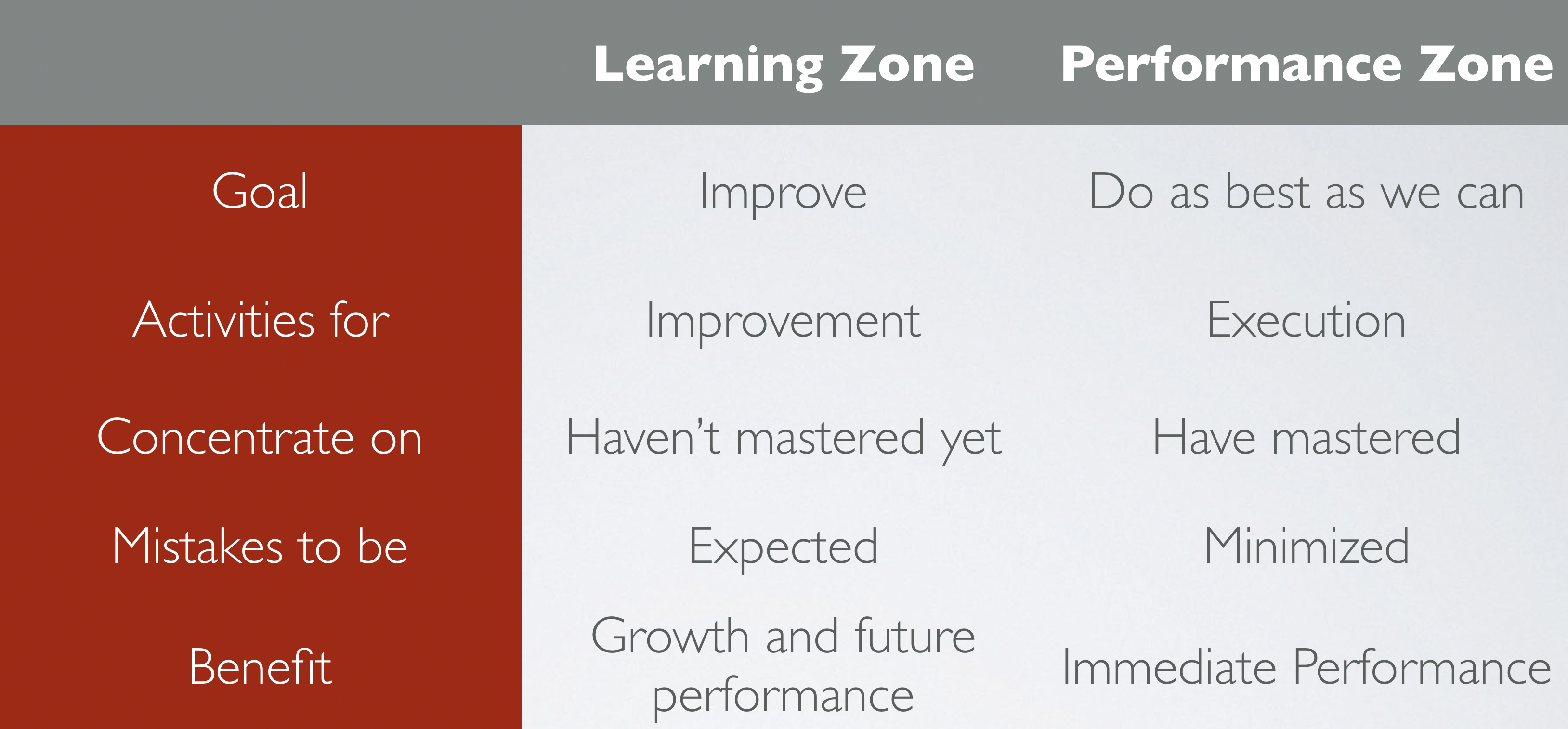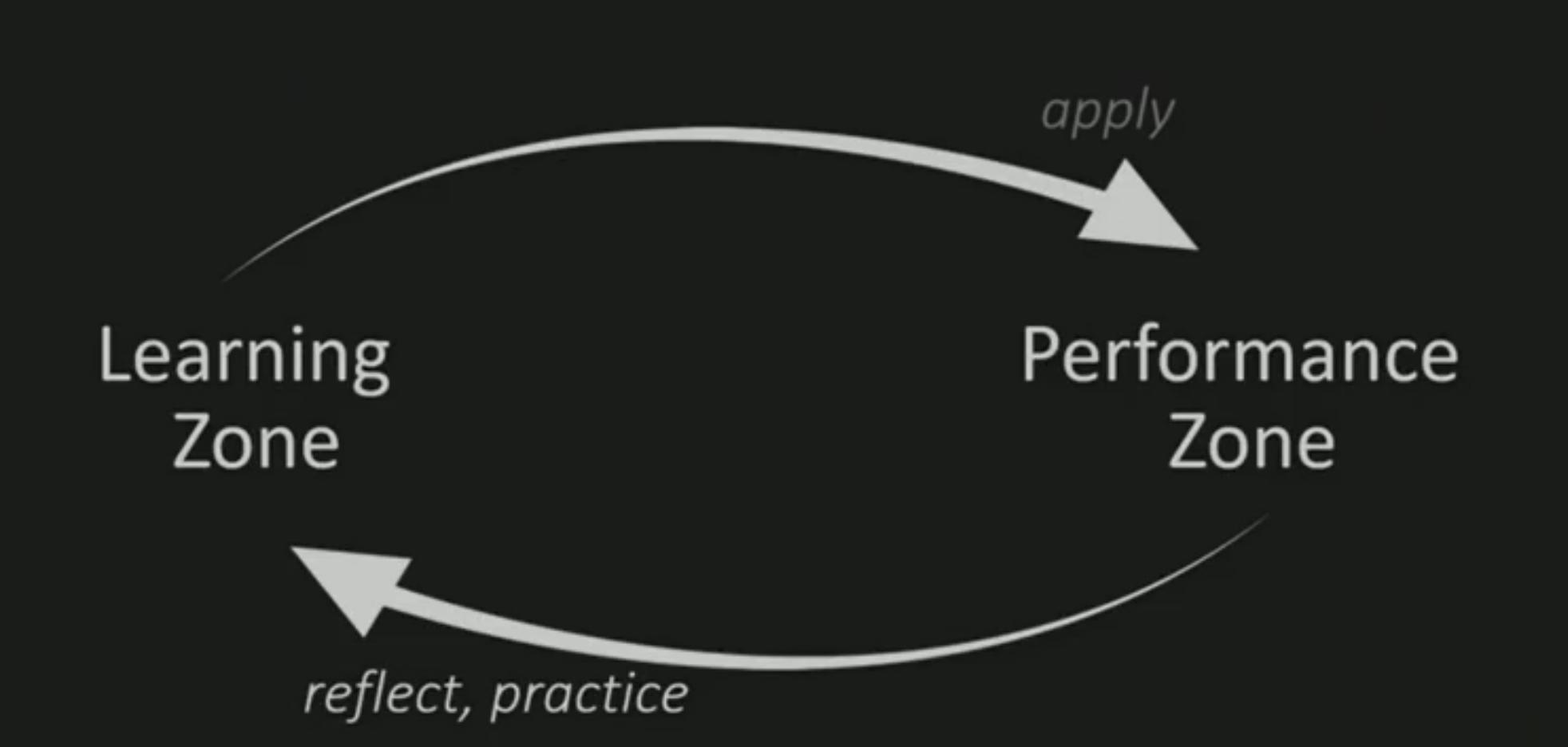
(内容纯手打,转载、使用请标注出处)
Most of us go through life~ trying to do our best~ at whatever we do Whether it’s our job, family, school ~ or anything else. I feel that way, I try my best. But.. some time ago, I came to a realization ~ that I wasn’t getting much better at the things I cared most about, whether it was being a husband or a friend, or a professional or a teammate. And I wasn’t improving much at those things even though I was spending a lot of time _ working hard at them. I’ve since realized from conversations I’ve had and from ‘research ~ that this stagnation, despite hard work, turns out to be pretty common. So I’d like to share with you some insights into why that is and what we can all do about it. What I’ve learned ~ is that the most effective people … and teams in any domain ~ do something we can all emulate — — they go through life deliberately alternating between two zones: The learning Zone ~ and the performance zone.


- First, we must believe ~ and understand that we can improve, what we call a growth mindset.
- Second, we must want to improve at that particular skill. There has to be a purpose we care about, because it takes time and effort.
- Third, we must have an idea about how~ to improve, what we can do to improve, not how I used to practice the guitar as a teenager, performing songs over and over again, but doing deliberate practice.
- And fourth, we must be in a low-stakes situation(低风险情境下), because if mistakes are to be expected, then the consequence of making them must not be catastrophic, or even very significant.
- First, we can create low-stakes islands in an otherwise high-stakes sea. These are spaces where mistakes have little consequence. For example, we might find a mentor or a trusted colleague with whom we can exchange ideas or have vulnerable conversations or even role-play.
- Or we can ask for feedback-oriented meetings as projects progress.
- Or we can set aside time to read or watch videos or take online courses. Those are just some examples.
- Second, we can execute and perform as we’re expected, but then reflect on what we could do better next time, like Beyonce does, and we can observe and emulate experts. The observation, reflection and adjustment is a learning zone.
- And finally, we can lead | and lower the stakes for others by sharing what we want to get better at, by asking questions about what we don’t know, by soliciting feedback and by sharing our mistakes and what we’ve learned from them, so that others can feel safe to do the same. Real confidence is about modeling ongoing learning.
